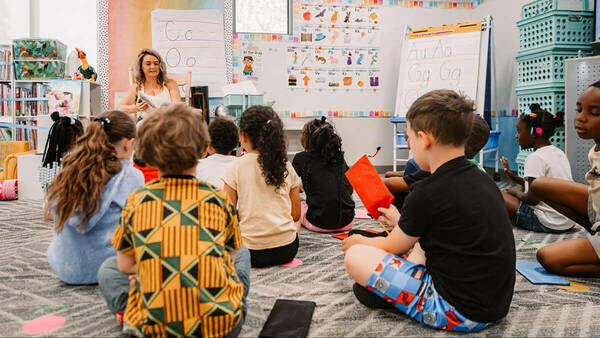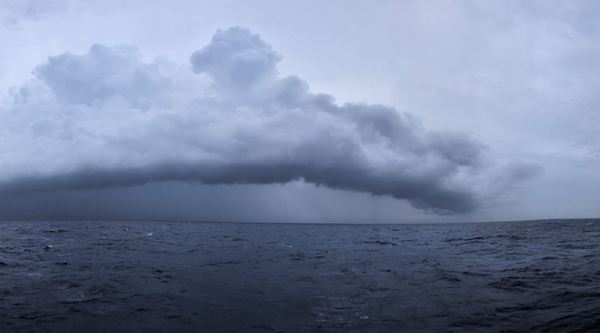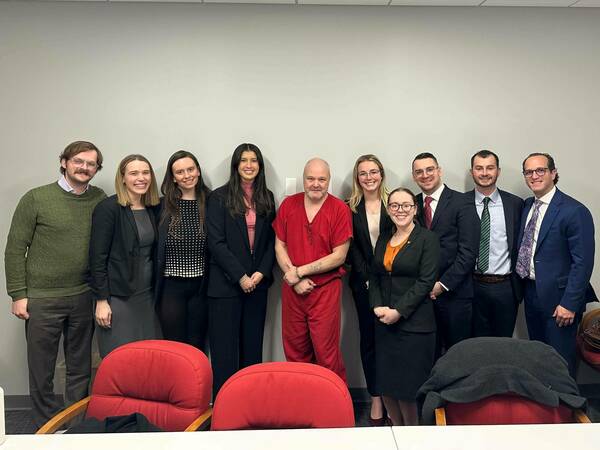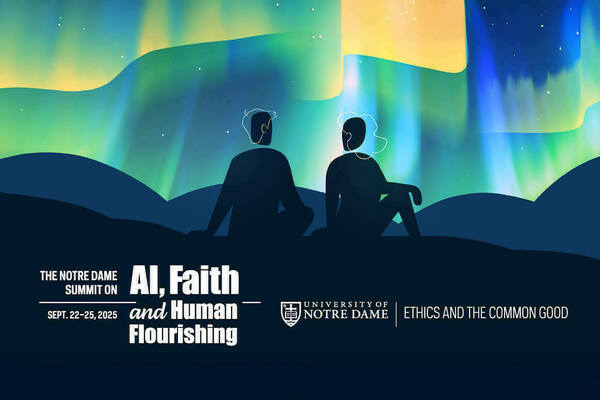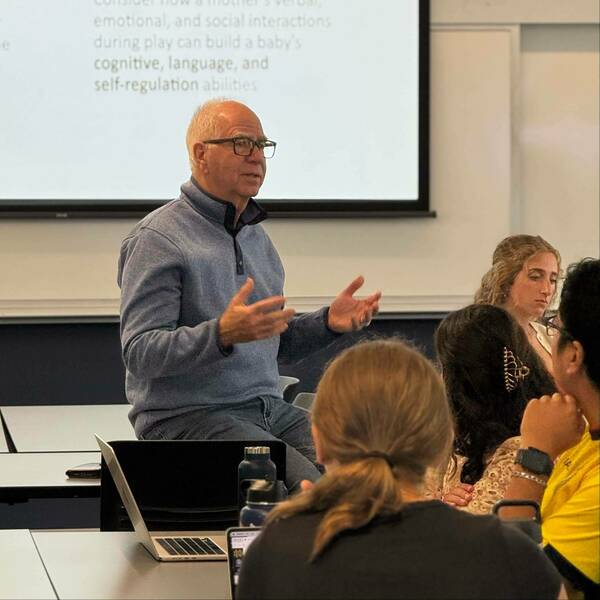Notre Dame partners with area Boys & Girls Clubs on research to close achievement gaps, reduce inequality

The University of Notre Dame’s Wilson Sheehan Lab for Economic Opportunities (LEO) and Pulte Institute for Global Development are partnering with the Boys & Girls Clubs of the Northern Indiana Corridor to evaluate and inform ways to improve a signature learning program, providing evidence that will help improve education outcomes for area children.
The community-based partnership project aims to help close achievement gaps among students who may be impacted by systematic barriers. It is funded by the Notre Dame Poverty Initiative, a University-wide effort to create a world intolerant of poverty by expanding knowledge about how to solve it.
Notre Dame researchers are evaluating the Boys & Girls Clubs’ STRIVE program, which builds on the clubs’ standard after-school club experience. STRIVE seeks to promote students’ development holistically by combining STEM, literacy and social-emotional learning enrichment activities.
While previous studies have demonstrated the effectiveness of comprehensive youth programs, the new research will evaluate STRIVE’s distinctive approach. The goal is to identify what works and where there are opportunities for improvement. Findings will strengthen the clubs’ educational interventions.
“At the Boys & Girls Clubs of the Northern Indiana Corridor, our goal is to deliver the highest quality services to the families who need us most,” Chief Executive Officer Duane Wilson said. “This research study enables us to evaluate and enhance our programs, ensuring we are meeting the evolving needs of our youth and providing the most effective support possible.”
Strengthening literacy interventions for students

STRIVE is a year-long learning program designed to use the innate passions of children to empower them to learn outside of the classroom. Each month, clubs focus on a theme to guide math and literacy. The program builds upon previous collaborations with Notre Dame’s Robinson Community Learning Center (focusing on literacy) and the Riverbend Community Math Center (focusing on STEM).
Notre Dame researchers are using an innovative approach to assess impact and suggest improvements:
- LEO’s research team is working closely with the clubs to conduct an impact evaluation of STRIVE through a randomized control trial. This will generate evidence of the impact that enrichment programs have on a variety of academic outcomes, including grades, standardized test scores, social and emotional development and school attendance. It will also evaluate behavioral outcomes that are measured through incident and teacher reports.
- At the same time, TJ D’Agostino, an education policy scholar at Notre Dame’s Keough School of Global Affairs, is leading an implementation research study that will complement LEO’s work. The aim is to understand why, how, for whom, and under what conditions the STRIVE program works or fails to work.
This hybrid trial approach, which draws inspiration from the field of public health, provides a more comprehensive way to understand programs’ design and implementation, D’Agostino said. It can enhance STRIVE’s effectiveness for the thousands of children the Boys & Girls Clubs serve in Northern Indiana, he said, while also serving as a resource for other clubs across the country.
“Effective policy and practice must be grounded in evidence and a learning orientation for continuous improvement,” said D’Agostino, who is affiliated with the Keough School’s Pulte Institute for Global Development. “It’s a privilege to work closely with LEO and our local partners to evaluate education interventions and identify both what works and how to make promising interventions work better.
“Improving education outcomes is critical to expanding opportunity, and our research will make a tangible impact in the lives of young people, starting right here in our local community.”
Image credit: Boys & Girls Clubs of the Northern Indiana Corridor
Originally published by at keough.nd.edu on August 07, 2025.
Latest Research
- Managing director brings interdisciplinary background to Bioengineering & Life Sciences InitiativeThis story is part of a series of features highlighting the managing directors of the University's strategic initiatives. The managing directors are key (senior) staff members who work directly with the…
- Monsoon mechanics: civil engineers look for answers in the Bay of BengalOff the southwestern coast of India, a pool of unusually warm water forms, reaching 100 feet below the surface. Soon after, the air above begins to churn, triggering the summer monsoon season with its life-giving yet sometimes catastrophic rains. To better understand the link between the formation of the warm pool and the monsoon’s onset, five members of the University of Notre Dame’s Environmental Fluid Mechanics Laboratory set sail into the Bay of Bengal aboard the Thomas G. Thompson, a 274-foot vessel for oceanographic research.
- Exoneration Justice Clinic Victory: Jason Hubbell’s 1999 Murder Conviction Is VacatedThis past Friday, September 12, Bartholomew County Circuit Court Judge Kelly S. Benjamin entered an order vacating Exoneration Justice Clinic (EJC) client Jason Hubbell’s 1999 convictions for murder and criminal confinement based on the State of Indiana’s withholding of material exculpatory evidence implicating another man in the murder.
- Notre Dame to host summit on AI, faith and human flourishing, introducing new DELTA frameworkThe Institute for Ethics and the Common Good and the Notre Dame Ethics Initiative will host the Notre Dame Summit on AI, Faith and Human Flourishing on the University’s campus from Monday, Sept. 22 through Thursday, Sept. 25. This event will draw together a dynamic, ecumenical group of educators, faith leaders, technologists, journalists, policymakers and young people who believe in the enduring relevance of Christian ethical thought in a world of powerful AI.
- Preparing Global Leaders: Notre Dame Students Put Early Childhood Development Science into PracticeThis fall, Notre Dame students are turning research into real-world solutions. In a unique course, Early Childhood Development and Poverty Alleviation: A Global Perspective, 27 students are learning how the science of early childhood development can break cycles of poverty — and then applying…
- How can we have better conversations about environmental conservation? New Notre Dame research charts a path.As the planet faces mounting environmental crises, including a decline in global biodiversity, a new study from the University of Notre Dame calls for a seemingly simple yet transformative practice: better conversations. In a co-authored paper published in Conservation Biology, Daniel C. Miller outlines five key principles to foster more effective and inclusive dialogue about conservation. The paper builds on more than a decade of collaborative work in conservation social science and presents a framework to address one of the field’s most pressing yet underexamined issues—how conservationists talk to one another.



